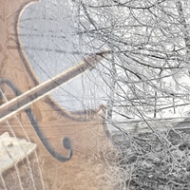A picture so famous it’s become a postage stamp. In the words of Schubert scholar Janet Wasserman, “Perhaps the single-most striking exemplar in nineteenth century European art of the lone figure in nature is the painting by Caspar David Friedrich (1774-1840) Der Wanderer über dem Nebelmeer (The Wanderer Above the Mists) ca.1817/1818. The painting of the wanderer with his back turned to the viewer and facing the misty crags below him has been reproduced numerous times in our contemporary era, to the point of cliché, as emblematic of modern man’s alienation. Often used as the theme of man in his private existential agony living in nature and yet pitted against it, Friedrich’s wanderer has found even greater resonance in Franz Schubert’s song cycle Winterreise……
The entire article is here. But I wish you could see some of the pictures she’s referencing!

